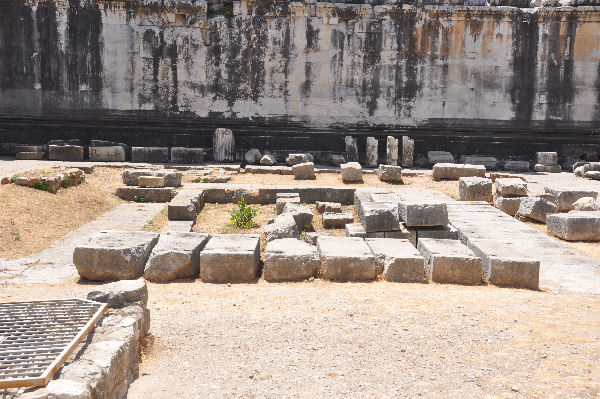Read your bible like a Missionary
How does modern church missions teach us to read the bible with greater clarity?
You’ve probably been on a “missions trip” before. Studies as early as 2009 were indicating that 35% of all American Young Adults (age 25 and under) had either participated in or planned to participate in a service trip in the next three years. Those number have only trended up since.
In all likelihood, if you haven’t participated in a trip yourself, you’ve likely been hit up with a support letter. Even though the world is becoming flatter and flatter and we have more and more opportunity for cross cultural experience, few of us have come away from our cross cultural experience realizing the significant implication it could have for how we read the bible.
Simply put, we are far more willing to invest time, effort, and even money into being able to successfully communicate the gospel into a foreign “target” culture than we are willing to invest our time, effort and money into receiving the gospel from its “origin” culture. We forget that the modern western world is and continues to be a “target” culture for the original authors of the bible. Authors who are no longer alive to make the missionary investment. We, the “target” culture have been left to shoulder that burden because ultimately, reading the bible is a life long cross cultural experience.
Reading the bible is a lifelong cross cultural experience for those in the modern western world.
But what would it mean to read our bibles missionally – fully aware that we are entering a foreign culture and receiving a foreign message. In the first place we would spend a whole lot more time, effort and money becoming culturally competent in the bible’s cultures of origin.
Reading the bible should be like a long-term mission trip!
Let’s face it, you can get away with less training on short-term mission trips than you can on a long term mission. Churches tend not to invest in very many long term missionaries that haven’t spent a year or two trying to achieve fluency in a target language. Yet, we are often very willing to ignore the importance of original language study in our daily devotions and weekly bible studies.
Sometimes I am shocked by ministry leaders that insist, in one breath, that: everything one needs to understand about the bible can be gleaned from modern english translations. Yet just a few short breaths later will insist upon the importance of contextualizing the gospel for this group or that group. If the gap between adult bible education and youth bible education is so great, how much more should we consider the gap created by two thousand years of world history and an entire shift in worldview.
Fortunately, the missionary’s lens exposes both the problem and potential solutions.
Even as missions identifies our blindness to the cultural gap between ourselves and the bible, it also gives us a method for bridging that gap in order to more clearly receive the bible’s original message. Missions is, after all, in the business of making connections across cultural gaps.
You don’t have to be a long-term missionary to learn to benefit from cross -cultural missional thinking. Indeed, we can take a lot of the strategies utilized by short-term missionary leaders to help us increase our cultural competence when it comes to our daily bible reading.
4 cultural competencies necessary for reading our bibles with greater clarity.
In his definitive book on short-term missions, Serving with Eyes Wide Open, David Livermore identifies four core competencies that missionaries must achieve in order to effectively serve in a cross-cultural context. By developing these four competencies of “Cultural Intelligence” not only will we be more equipped to communicate the gospel cross-culturally we might just find that we are better equipped to read that gospel message in its original context according to its original thought world.
1. We have to develop our drive to think (and read) cross-culturally.
By this Livermore means that missionaries must be interested in and motivated to engage with and adapt to cross-cultural experience. We can’t be missionaries in Vietnam and refuse to eat vietnamese food. We have to be willing to cross the gap.
The same goes for reading our bibles cross-culturally. We need to be willing and motivated to identify those areas where the words on the page may be culturally influenced. We have to be prepared to question our “literal” understanding of our english bibles in order to see if there are cultural layers simmering just below the surface of the text. And, once found, we need to be excited about the opportunity to dive in and immerse ourselves in the bible’s ancient cultural context.
2. We have to develop our knowledge of foreign cultures.
By “knowledge” Livermore means that missionaries need to understand and measure the various degrees and levels of cultural difference between their own culture and that of the target culture. For Livermore, this is about more than simply gaining an outline of a culture’s history. It is about becoming cognizant of the mental geography of a foreign culture. Frequently this geography is invisible, it goes without being said, and is made up of all the assumptions about life that we subconsciously assent to on a daily basis.
Our cultural knowledge regarding the world of the biblical text needs to be nurtured as well. Many of the categories used to understand cultural difference in the modern context (such as notions of time, individualism vs communalism, power distance, etc) can be brought to bear on the gap that exists between ourselves and the ancient biblical world. Doing so will allow us to more easily identify subtextual assumptions shared by the bible’s original authors and audience. Frequently these subtextual assumptions shade the Bible’s message in ways that are easy for us (modern western foreigners) to miss.
3. We have to develop our cultural strategy
Its not enough to have drive and knowledge, for Livermore, missionaries need to have a plan in place to ensure that we are “mindful and aware when we interact cross-culturally.” It means that missionaries actually become aware of cross-cultural interaction prior to the event so that the interaction can be planned in culturally sensitive and appropriate ways. It also means that missionaries have mechanisms in place to allow for flexibility according to the facts on the ground.
Reading the biblical text with cultural strategy means that we are prepared to handle messages of the text that are culturally distinct from our own. It means we don’t jump to conclusions about the message of the text because of our own feelings and dispositions on any given day. It means never assuming that what we understand to be the “plain meaning” of the text was in fact the “plain meaning” intended by the authors. It means investing in resources that facilitate our own, and our congregants entrance into the cultural world of the text. And perhaps more importantly, it means having an open hand approach to receiving and discussing questions regarding biblical meaning, message and application.
4. Finally, we have to develop our willingness to act culturally.
By this, Livermore, means that missionaries must be willing to in-fact change their behavior when interacting cross culturally. This might entail changing everything from what they say, to who says it, where and when. And it most certainly entails how one practically applies their cultural drive, knowledge and strategy to living among and engaging with the target culture.
In terms of reading our bibles with greater clarity, developing our cultural action means that we are more willing to allow the text’s original culture to determine its message today. Before applying the words of the bible to our lives in 21st century modern America, we have to determine how those words might have applied to its first audience. Only then can we begin to seek a textual application that successfully translates the original application into our modern context. To do anything else is to allow our own modern context to determine the meaning of the text.
We are called to be transformed by the message of the bible. Sometimes that message comes in ways that are steeped in its own ancient and foreign culture. That knowledge should be brought to bear on how we apply the text. In other words, cultural action implies that we don’t just translate words, concepts and meanings – we also have to translate the original authors intended effects. If the ten commandments were meant to offer grace in a system that sought retribution escalation, perhaps we should’t be using it as a means of condemnation in our evangelism.
You may or may not have engaged in a short term service mission during the course of your life, I only pray that you realize: You are part of a “target” culture, distinct from the bible’s cultures of origin. What’s more, you are on the receiving end of a long-term missionary effort each and every time you open up your biblical text. Learn from this fact. Develop your cross-cultural drive, knowledge, strategy and action in order to read your bible with more clarity and live better today.
You are part of a “target” culture, distinct from the bible’s cultures of origin.
What has been your experience with missions or cross-cultural interaction? How has that led you to read the bible with greater clarity?
Disclosure of Material Connection. Some of the links above are affiliate links. That being said I only promote things which I thoroughly believe my readers will benefit from and that I use myself. I am disclosing this in accordance with the Federal Trade Commission’s 16 CFR, part 255: “guides Concerning the Use of Endorsements and Testimonials in Advertising.”







